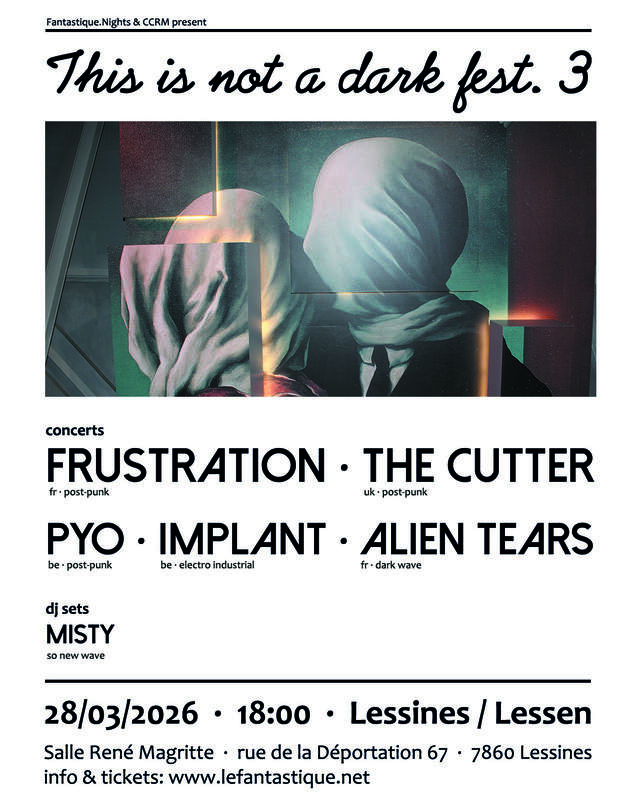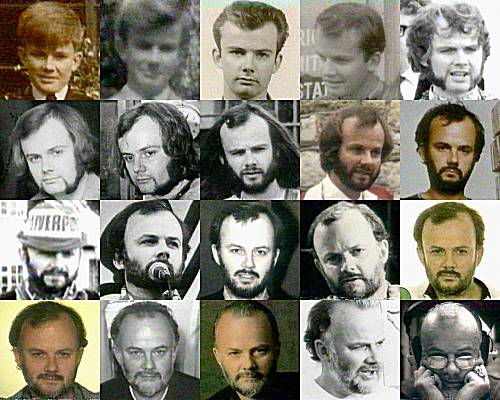
Today, 45 years ago, John Peel played Joy Division's Dead Souls for the first time on BBC Radio.
On 12th March 1980, renowned long term BBC radio journalist and DJ John Peel (30 August 1939 – 25 October 2004) played Joy Division's Dead Souls for the first time after he discovered the track as a B-side on the 7" Licht und Blindheit.
This single, with Atmosphere on the A-side, was released in 1980 as a France only and limited edition of 1,578 copies. The 7" came with a 3 page colour gatefold booklet with a translation, text written by Jean-Pierre Turmel, a painting by Jean-Francois Jamoul and a photograph by Anton Corbijn.
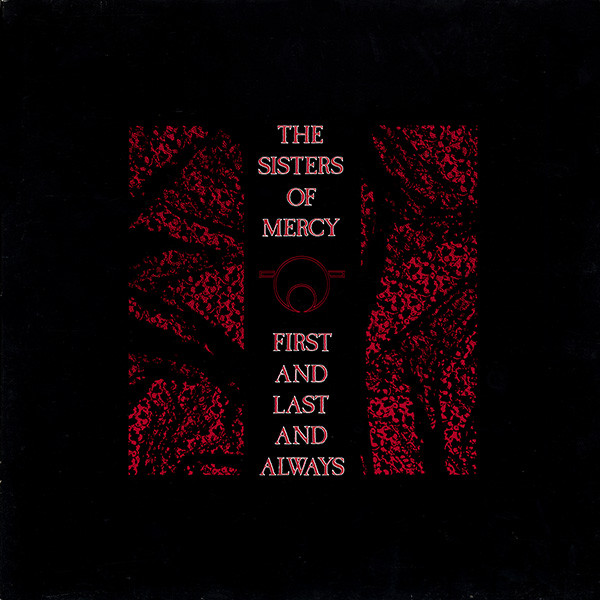
Today, 40 years ago, The Sisters Of Mercy released First And Last And Always!
First and Last and Always – The Birth of a Gothic Rock Classic
Today, 40 years ago marked the release of First and Last and Always, the debut album from The Sisters of Mercy. It was released on 11 March 1985 through Merciful Release and WEA, with Elektra Records handling the US release. A record that would go on to define gothic rock, it remains one of the most influential and haunting albums of its era. Nearly four decades later, its echoing guitars, brooding atmosphere, and melancholic lyricism continue to captivate listeners, cementing its place as a cornerstone of dark alternative music.
The album was recorded during the second half of 1984 and multiple recording sessions took place in various recording studios. It was mixed and produced by David M.Allen who also produced for the likes of The Cure, Depeche mode, Wire and The Human League. The album's production was fraught with tension. Internal conflicts within the band, particularly between Eldritch and guitarist Wayne Hussey, would ultimately lead to their dissolution shortly after its release. However, this very tension contributed to the album’s raw emotion and intensity. Songs like “Black Planet” and “Walk Away” captured a sense of restless urgency, while the title track and “Marian” submerged the listener in a world of doomed romance and gothic grandeur. The closing track, “Some Kind of Stranger,” remains one of the most poignant and emotionally charged moments in the band's discography.
At the time of its release, The Sisters of Mercy were already a force in the underground post-punk and gothic scenes. With a string of well-received singles and EPs, they had cultivated a devoted following drawn to their distinctive blend of driving rhythms, somber melodies, and enigmatic lyricism. First and Last and Always saw the band refine their signature sound—layering cold, reverb-drenched guitars over the mechanical pulse of the iconic drum machine, Doktor Avalanche, while Andrew Eldritch’s deep, resonant voice delivered poetic musings on love, loss, and existential dread. As Dr. Avalanche, The Sisters Of Mercy’s nickname for their drum machine, an Oberheim DMX drum machine was acquired for the recording of this album.
Though the album only achieved moderate commercial success at the time, its influence on the gothic rock movement was profound. The Sisters of Mercy, along with contemporaries like The Cure and Bauhaus, helped shape what would become the goth aesthetic—both sonically and visually. First and Last and Always inspired countless bands, from Fields of the Nephilim to later acts like HIM and Type O Negative, proving that its shadowy allure was far-reaching.
The album also marked a turning point for the band itself. Shortly after its release, Hussey and bassist Craig Adams departed, forming The Mission and carrying forward their own version of the gothic rock sound. Meanwhile, Eldritch retained the Sisters of Mercy name, eventually crafting a more synth-heavy, grandiose direction with Floodland (1987). While The Sisters of Mercy continued to evolve, First and Last and Always remained their most intimate and emotionally bare offering, a testament to the fragile beauty of gothic rock’s golden era. Later Eldritch would suggest the song ‘Walk Away’ was directed at Marx.
Although Wayne Hussey and Gary Marx wrote and sang some of the initial lyrics for some of the demo tracks, Eldritch eventually wrote all the final lyrics as they would appear on the finished album. Both Wayne and Marx re-used some of those lyrics later for their own projects The Mission and Ghost Dance.
Two (demo) songs that didn’t make the album, Serpents Kiss and Wake, would later be re-recorded and released by The Mission.
The album went silver (with 60,000 sold) in the UK on 30 October 1987 and gold (with 100,000 sold) on 8 May 1989. Its highest position in the UK album charts was no. 14. In Germany, the group's second largest market after the UK, the album went gold (with 250,000 sold) in 2011. Its highest position in the German album charts was no. 40.
Nevertheless, the production of the album left the band initially in enormous debt. According to Andrew Eldritch, the album recouped the production costs only by 1988.
Today, 40 years later, First and Last and Always is more than just an album—it is a defining moment in alternative music history. Its haunting soundscapes and poetic despair continue to resonate with fans old and new, ensuring that the legacy of The Sisters of Mercy endures. As we look back on its release, we celebrate not just an album, but a lasting monument to the dark romance and timeless allure of gothic rock.
First Last And Alway - Track listing
|
Side A |
|||
|
No. |
Title |
Length |
|
|
1. |
"Black Planet" |
4:26 |
|
|
2. |
"Walk Away" |
3:24 |
|
|
3. |
"No Time to Cry" |
4:03 |
|
|
4. |
"A Rock and a Hard Place" |
3:34 |
|
|
5. |
"Marian (Version)" |
5:44 |
|
|
Side B |
|||
|
No. |
Title |
Length |
|
|
6. |
"First and Last and Always" |
4:02 |
|
|
7. |
"Possession" |
4:39 |
|
|
8. |
"Nine While Nine" |
4:12 |
|
|
9. |
"Amphetamine Logic" |
4:54 |
|
|
10. |
"Some Kind of Stranger" |
7:20 |
|
|
Total length: |
46:20 |
||
2006 CD re-issue Bonus Tracks
|
No. |
Title |
Length |
|
11. |
"Poison Door" |
3:40 |
|
12. |
"On the Wire" |
4:18 |
|
13. |
"Blood Money" |
3:13 |
|
14. |
"Bury Me Deep" |
4:45 |
|
15. |
"Long Train" |
7:28 |
|
16. |
"Some Kind of Stranger" (Previously Unreleased Early Version) |
8:43 |
|
Total length: |
78:27 |
|
The Sisters Of Mercy - Personnel
- Andrew Eldritch – vocals, sleeve design, mixing
- Craig Adams – bass guitar
- Wayne Hussey – guitar, vocals
- Gary Marx – guitar
- Doktor Avalanche (drum machine) – drums
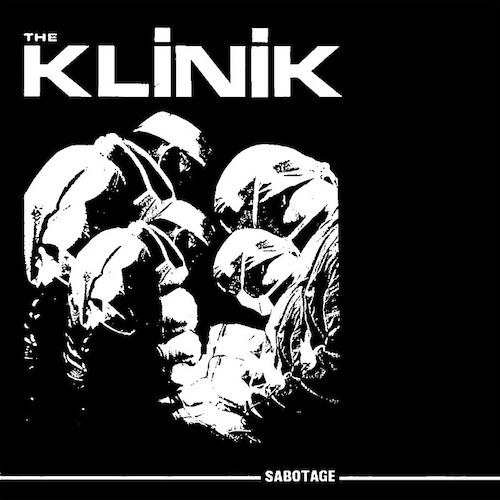
Today it’s exactly 40 years ago since The Klinik performed at Xenon, Aarschot, Belgium.
Today it’s exactly 40 years ago that The Klinik (at that time called Absolute Controled Clinical Maniacs) performed at Xenon (10.03.1985, Aarschot, Belgium). Two tracks, Sick In Your Mind and Vietnam which were recorded during this live show, appeared later that same year on the first The Klinik album Sabotage.
After this release The Klinik soon made a name for themselves with their cold and harsh EBM sound and their live shows, where they performed with their heads wrapped in gauze, wearing long black leather coats.
Even today, Sabotage is still considered as one of the most influential electro-industrial-EBM albums and became a must have collector item.
Sabotage (Tracklist)
|
A1 |
Decay |
5:00 |
|
A2 |
Hours & Hours |
5:38 |
|
A3 |
Braindamage |
4:04 |
|
A4 |
Sabotage |
4:53 |
|
B1 |
Sick In Your Mind (recorded live at at Xenon, 10.03.1985 Aarschot, Belgium) |
6:33 |
|
B2 |
Time Watch |
5:56 |
|
B3 |
Vietnam (recorded live at at Xenon, 10.03.1985 Aarschot, Belgium) |
4:23 |
|
B4 |
Burning Inside
|
|
'No Time To Cry' was The Sisters of Mercy's single No. 9, released in advance of their first studio album First And Last And Always and was released on 8 March 1985, 40 years ago!
While the previous advanced First Last And Always single ‘Walk Away’ managed to penetrate the UK single charts to the 45th position, ‘No Time To Cry’ got stuck at the 63rd place.
The appearance of Craig Adams on this release is questioned, especially on Blood Money and Bury Me Deep. Rumor has it that the bass lines were programmed on the Doktor, as Adams supposedly was reluctant to participate in their recording.
No Time To Cry (7" single MR335, 249118-7)
A. No Time To Cry 3'25"
B. Blood Money 3'12"
No Time To Cry (12" single MR 335T, 249117-0)
A. No Time To Cry 3'58"
B. Blood Money 3'12"
B. Bury Me Deep
Line-up:
• Craig Adams - Bass
• Gary Marx - Guitars
• Wayne Hussey - Guitars
• Andrew Eldritch - Vocals
• Doktor Avalanche - Drums
No Time To Cry (Lyrics)
It's just a feeling
I get sometimes
A feeling
Sometimes
And I get frightened
Just like you
I get frightened too
But it's...
No time for heartache
(no no no) No time to run and hide
(no no no) No time for breaking down
(no no no) No time to cry
Sometimes in the world as is you've
Got to shake the hand that feeds you
It's just like Adam says
It's not so hard to understand
It's just like always coming down on
Just like Jesus never came and
What did you expect to find
It's just like always here again it's...
No time for heartache
(no no no) No time to run and hide
(no no no) No time for breaking down
(no no no) No time to cry
Everything will be alright
Everything will turn out fine
Some nights I still can't sleep
And the voices pass with time
And I keep
No time for tears
No time to run and hide
No time to be afraid of fear
I keep no time to cry
No time for tears
No time to run and hide
No time to be afraid of fear
I keep no time to cry
No time for heartache
(no no no) No time to run and hide
(no no no) No time for breaking down
(no no no) No time to cry
Songwriters: Andrew Eldritch / Craig David Adams / Gary Marx / Wayne Hussey
© Universal Music Publishing Group
Sources: Sisterswiki.org / Wikipedia / Discogs
The Sisters Of Mercy - No Time To Cry (HQ) Sisters of Mercy - No time to Cry 1985 German TV - Formel 1 16/04/85
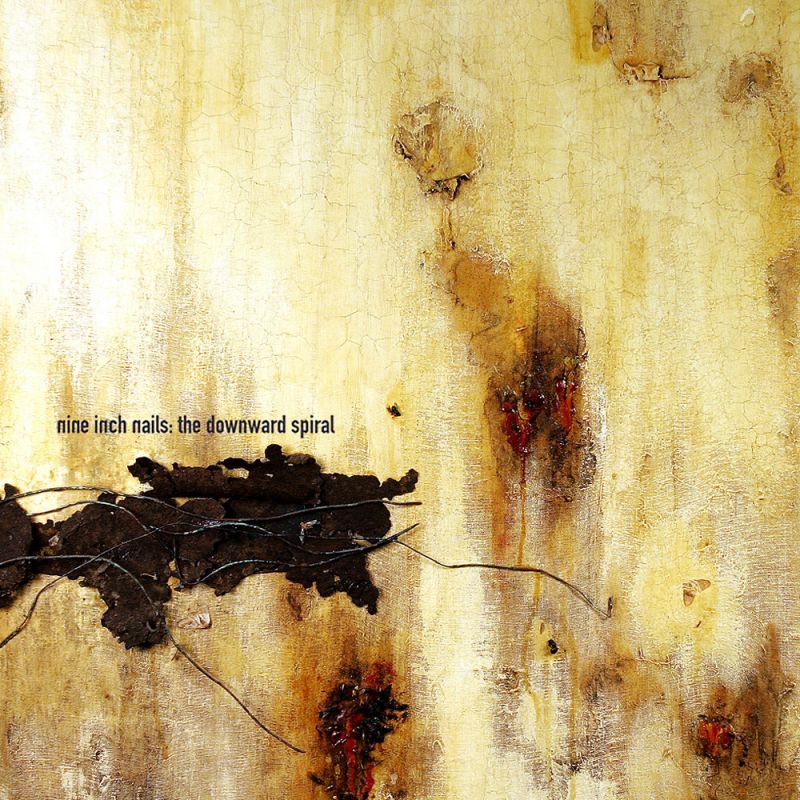
Today, exactly 31 years ago, American industrial band Nine Inch Nails released The Downward Spiral!
Today its exactly 31 years since American industrial band Nine Inch Nails released their second studio album The Downward Spiral (8th March 1994). In contrast to their first album Pretty Hate Machine, which was rather synth-pop/electro like, this album featured more distorted guitars and other heavy elements from the industrial music style.
The album was recorded at Trent Reznor’s ‘Le Pig’ studio which was actually located in the house of where actress Sharon Tate was murdered by members of Charles Manson’s cult.
The album is a concept album describing the destruction of a man, from the beginning of his downward spiral to his suicide attempt.
Two official singles were taken from the album, March of the Pigs and Closer, later followed by the promotional singles Piggy and Hurt.
Hurt was covered by Johnny Cash in 2003 to commercial and critical acclaim. Reznor praised Cash's interpretation of the song for its sincerity and meaning, even stating the song didn't belong to himself anymore.
The Downward Spiral was a major commercial success, and established Nine Inch Nails as a reputable force in the alternative music scene since.
The Downward Spiral (Tracklist)
Mr. Self Destruct
Piggy
Heresy
March Of The Pigs
Closer
Ruiner
The Becoming
I Do Not Want This
Big Man With A Gun
A Warm Place
Eraser
Reptile
The Downward Spiral
Hurt







